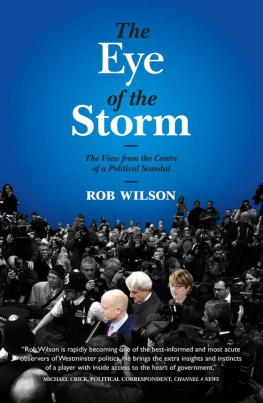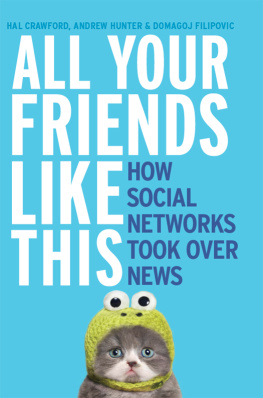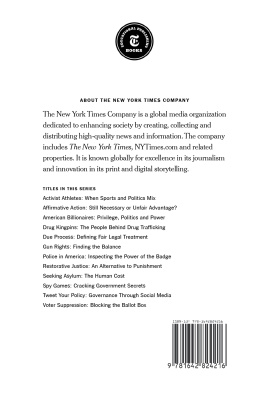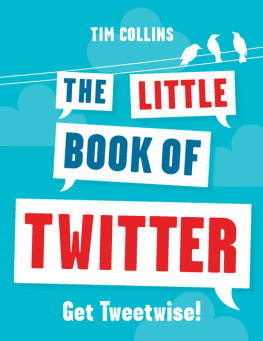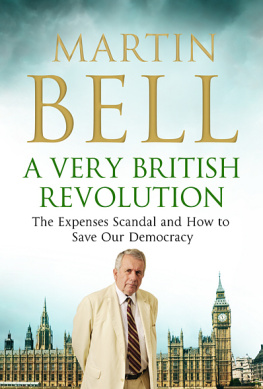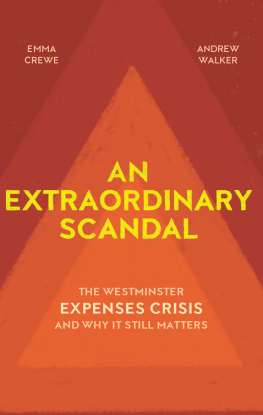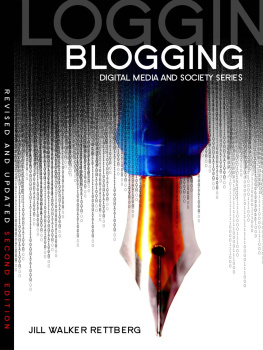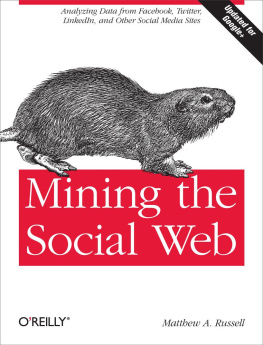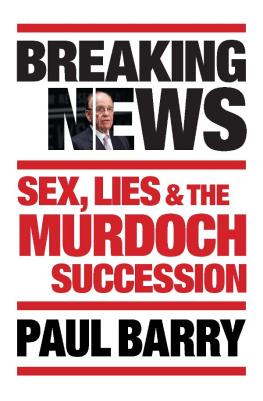A number of people have helped with the writing of this book. Above all, I would like to thank sincerely those politicians who generously agreed to be interviewed and co-operate with my writing about their experiences. The events I describe were nearly always life-changing; in most instances the person lost their job and saw long-cherished career ambitions extinguished. Many of the matters at the heart of each chapter were embarrassing and the experiences were often personally very painful. In some cases, the emotions are clearly still raw.
Even for hardened politicians it cannot have been easy to dig up bad memories and talk with frankness about such difficult times. Some of those approached understandably refused to be interviewed. I hope that those who kindly gave me their time and shared their views and memories with me will feel that I have been fair, accurate and that the book serves a useful purpose.
I should also like to thank those around Westminster and in the media who have shown an interest in the book. Even brief and informal conversations have led me to sources or prompted me to ask questions about the various scandals and crises that I might otherwise have missed. Although the book is aimed equally at a politically-interested audience and the general public, I hope those within Westminster and the political media will find much of interest and much to reflect upon.
Once again, I would like to thank the team at Biteback Publishing for commissioning me to write a book, and for their support and patience. Olivia Beattie, Managing Editor at Biteback, has been a superb editor. Her constructive and thoughtful comments have made the book better than it might otherwise have been.
Writing books can get in the way of family time, particularly as much of this book was largely written on holiday! I would like to thank Jane, Joseph, Elizabeth, Fern and Megan for being patient with me. We still managed to visit the places we wanted to go to and do the things we wanted, albeit occasionally delayed. This book is dedicated to them as a thank you for letting me write it.
When youre not in that firestorm you just cant appreciate how stressful it is.
Conservative MP
P arliaments darkest day blazed the headline on the front page of The Times on 15 April 2009. The scandal over MPs and peers expenses was raging at its fiercest, with fresh outrages by apparently greedy and grasping MPs being revealed on a daily basis on the front pages of the newspapers. It was, as the current Speaker of the House of Commons would later describe it, a case of reputational carnage affecting the entire political class.
For once, the goings-on of MPs in Parliament were at the front and centre of public consciousness and conversations. The British public appeared united in its disgust and outrage that whilst they suffered amidst the fallout of the financial crisis of 2008 and the worst recession in living memory, their so-called political representatives had been caught helping themselves to second homes, expensive televisions and even duck houses, moats and pornographic films from the public purse. The impact of the scandal has seared itself into public memory; some four years later, a poll found that politicians were trusted less than journalists, estate agents, and even bankers.
Few, if any, MPs or candidates could escape the fallout from the expenses scandal. But the politicians whose cases were at the very centre of the scandal suddenly found their reputations and careers in ruins. For those charged on the front pages of the newspapers, there seemed to be no way of getting a fair hearing against the wave of public anger, hostility and cynicism, even when they had a reasonable explanation. And it wasnt just their professional lives that were affected; it was their privacy and their families lives too. What had started as a scoop by one newspaper had turned into a runaway triumph for many, emboldening the entire media and turning its appetite for political scandal, and particularly anything expenses-related, into a frenzy. Journalists were looking into seemingly all aspects of MPs lives. Even the Parliamentary Standards Commissioner complained that he had Daily Mail photographers outside his house and felt under pressure. Whilst numerous MPs threw in the towel, a few buckled completely under the strain, with at least one suffering a mental collapse at the prospect of jail time and another attempting suicide.
The 2009 expenses scandal was, of course, not the beginning of political scandal and not the first political crisis in Britain. But nor has it marked the end of it. Despite a huge clear-out of MPs at the 2010 general election, their replacement with a younger generation, and solemn promises by the main party leaders to clean up politics, in the few years since the expenses scandal five senior members of the Cabinet have been forced to resign as a result of scandals, with one even going to jail. The political class as a whole was once again brought into disrepute when the close links between leading politicians and media barons were revealed during the scandal over phone hacking and similar unscrupulous behaviour by members of the press. And the usual stream of stories about MPs personal conduct and their private lives has continued, with political blogs and social media now providing another, less-controlled space in which rumours can gather momentum and the fires of potential scandals be fuelled.
QUESTIONS
In an age where public cynicism towards politicians in Britain now appears to be firmly entrenched, it would seem that any politician could find him or herself in the line of fire, almost at any time. And when a politician finds themselves on the front pages and towards the top of broadcast bulletins in the eye of the storm, so to speak they would appear to have the odds stacked against their political survival. The person at the centre of the storm would be forgiven for assuming that the public, if not their colleagues and the Westminster village, would presume them guilty until proven innocent. When journalists start picking up anothers scoop and following it up, the odour of bad publicity starts to spread and it suggests that those in the know believe there is more to come. If the media pack starts to scent blood and that an admission of guilt, a resignation or sacking may be in the offing all hell can break loose for the politician at the centre of it.
Looking back at individual scandals or crises alongside each other prompts us to ask some interesting questions: just how do those politicians in the eye of the storm attempt to overcome the odds and emerge with their political careers and reputations intact? What strategies are used? Why do some succeed and some fail? And although most people in Britain would agree that vigorous press scrutiny of politicians is a good thing, what lessons could be learned and what mistakes should be avoided in the heat of the moment to stop otherwise worthwhile political careers being needlessly cut short? Given that there are so many scandals of varying degrees of seriousness in politics, is there a standard operating manual or reserve of expertise on hand to support politicians in trouble, or do they find themselves isolated, forced to reinvent the wheel alone as the clamour grows for their downfall?
THE HUMAN SIDE OF POLITICAL SCANDALS
Alongside the strategic and tactical considerations, it must be remembered that periods of crisis and scandal form some of the most intense periods of political careers, and indeed the lives, of those at the centre of them. Whilst the attention of the media and the public often swiftly moves on, regardless of the outcome, the personal impacts can last for years. Indeed, the experience is often life-changing. It is at these times that the strongest friendships may be formed, consolidated or broken. Invariably, spouses, parents, children, neighbours and friends find themselves dragged in. Crises and scandals make for exciting and compelling stories with moments of high drama. But their impact on real,

